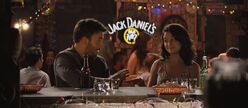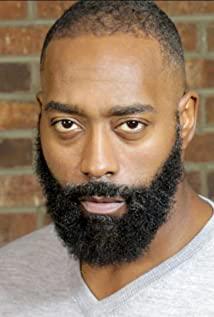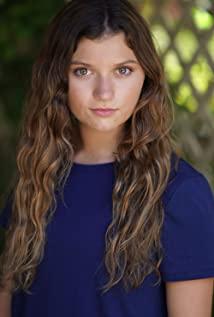"Genius Girl" is a film about how to educate gifted children. It is performed by Captain America Chris Evans and cute child star McKenna Grace. The film tells the story of three genius girls in a family of three generations, triggering people to think about children's education.
01
There are three genius girls in the movie, one is Mary, seven years old, one is Mary's mother Diane, and the other is Mary's grandmother Evelyn.
The movie takes Mary as the main body, interspersed with the story of mother and grandmother from the side.
McKenna Grace plays Mary, the proud and intelligent little genius girl in "Genius Girl".
Some audiences may not be familiar with McKenna Grace. She has performed well in "I, Queen of Flowers" and "Captain Marvel".
In this "Genius Girl" starring McKenna, she perfectly interprets the abundance of emotional expression and psychological changes during the critical period of a gifted child's growth. Before being tamed by rules and order, a seven-year-old child full of wildness, childishness and sincere emotions was vividly performed by her, and arousing love and pity.
McKenna said that she made a lot of preparations for this role and watched many movies, such as "Paper Moon", "In America", "The Cramers", "I Am Sam", "Mind Catcher", etc. It took a year to study the role of Mary in the script.
It can be said that the success of this film is brought by McKenna.
Mary in the film is very intelligent. Her uncle raised her alone. She has no friends of the same age, does not understand social skills, and does not know how to be a child. She has only one one-eyed orange cat named Fred, and her only friend is Roberta, a 40-year-old black female neighbor.
The seven-year-old Mary has shown the pride, narcissism and willfulness that are unique to gifted children. She still does not know how to care for and sympathize with others.
Educating such a genius is not an easy task. Fortunately, Mary has an uncle who loves her very much.
02
Captain America Chris Evans plays Mary’s uncle Frank. He was originally a professor of philosophy at Boston University. After his genius sister Diane committed suicide, he brought with him his six-month-old niece, Mary, out of guilt and escape. Move away from the original place and become a ship repairer.
When he first adopted Mary, Frank was at a loss. His own life was a mess, not to mention raising a baby. He had thought about sending Mary to a foster family countless times.
But soon, Mary's character formed. She began to feel sad, sad, happy, and angry. She was so smart and cute. Frank fell in love with the elf, and the two got along more and more harmoniously.
They surfed on the sea in a boat, discussed the children in school by the beach, played in the sunset and explored God and faith, and said that they would never leave each other.
Because his sister Diane is a genius, she was introverted and didn't know how to get along with others. Frank didn't want Mary to repeat her mother's mistakes. He wanted Mary to be an ordinary little girl with normal feelings, normal social interactions, and a normal childhood.
He would directly hug Mary out to play when she was addicted to math problems.
He will listen carefully to Mary's weird stories about the orange cat, and let Mary understand empathy through the orange cat.
He taught Mary not to bully the weak, made Mary have a sense of justice, made her respect her elders, and made her respect the world.
Most importantly, he taught Mary the meaning of love.
When Mary knew that her own father did not like her, she hid in the room sadly and wept. Frank did not use words to comfort Mary, but took Mary to the obstetrics and gynecology hospital, so that Mary witnessed the arrival of new lives in the family. The joy, excitement, gratitude and joy of joy. At that moment, Mary knew that she had come to this world with such beautiful expectations and blessings. Not only did she come out of the sorrow that was ignored by her father, she also understood the warmth and meaning of being born.
But Frank's powerful mother, Evelyn, has a completely different educational philosophy. She feels that geniuses should do what she has destined to do. She thinks that Flac's way of education is a waste of Mary's talent. For this reason, she and her son go to court to fight for Mary's custody.
03
Evelyn, played by Lindsay Duncan, was originally a mathematics genius. Later, because of her love and marriage, she had children. She led the life of ordinary people and gave up the mathematics she loved. Therefore, mathematics became her cinnabar mole and became her forever. Obsession.
She imposes what she has not done on her daughter Diane, who is also a math genius.
Diane has been soaked in math problems since she was a child. Except for math, she has no sports, no hobbies, and no childhood. Her beautiful first love was ruined simply and rudely by her mother. Evelyn turned a blind eye to Diane's resistance to depression. She only wanted her daughter to solve one of the "Millennium Dilemmas" that she had been looking forward to, the Navier-Stokes equation.
Evelyn believed that Diane's suicide was weakness and escape. She felt that geniuses should abandon their own preferences, concentrate on doing things useful to mankind, and make contributions to the progress of mankind.
After Diane committed suicide, she wanted to use the same reason to control Mary and let her continue her unfinished business.
04
In order to prevent his mother from succeeding, Frank reluctantly adopted a compromise measure. After many inspections, he handed Mary to a foster family, regardless of Mary's crying and pleading.
However, when he learned that Fred, the one-eyed orange cat, was abandoned by Mary’s foster family, he put everything down and ran to the animal adoption agency, where he rescued the cats who were about to be euthanized in time, and rescued several others and Fred. Kittens of the same fate.
It was also at that moment that he understood that even the perfect foster family could not really satisfy Mary's emotional needs. Orange cats are like family members. They abandon the orange cat as cruel as he abandons Mary.
He understood what Mary meant to him, and took back Mary's custody rights with his assassin.
After such a tug-of-war, Frank no longer escaped, he chose the education method that was most suitable for Mary. He provided Mary with stable emotional dependence and began to respect Mary's rights and abilities. Mary has a happy and carefree childhood, and a world of mathematics full of mysteries.
I forgot to see in which novel, a genius girl who refused to confess her confession was like this: "Sorry, I like Bonhard Riemann. Thank you for your love. Now we should all Focus on your studies. You don’t need to be inferior. In my opinion, no man can compare to Bonhard Riemann."
If it were Mary, her refusal would be even cooler, "I like boys who can solve the Navier-Stokes equation."
View more about Gifted reviews











